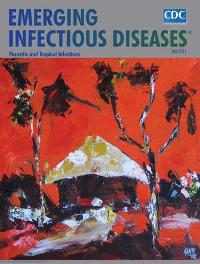On the Desire to Change Lightbulbs Instead of Paradigms
By Sandra Steingraber
ORION
Well-informed futility flourishes whenever there are discontinuities in the messages we receive, as when we are told that a problem is dire (climate chaos) but the proposed solution (buy new light bulbs) seems trivial. If the problem were truly huge, wouldn’t we be asked to respond with actions of equivalent magnitude?

A DECADE AGO, I published a book about the links between chemical exposures and cancer. The research for it required four years, two postdoctoral fellowships, and fluency with Freedom of Information Act requests. I attended workshops on cluster analysis and taught myself molecular epidemiology. I made field trips to cancer laboratories, studied tumor patterns among wildlife populations, and rode a cable down a three-hundred-foot shaft to look at groundwater. When the writing was all done, I helped prepare the publicity materials, which, among other things, claimed that my book was the first to bring together data on toxic releases with data from U.S. cancer registries. No one had attempted that before. It was a big book.
One of my first stops on the author tour was a television talk show that taped in Hollywood. Dropping by for the requisite pre-interview, I was greeted in the studio by a woman in a diminutive orange dress who said her name was—I’m not making this up—Tangerine. Tangerine instructed me to fill out seven index cards and bring them to the interview the next day. On each one, I was to jot down a single “cancer prevention tip.” These seven tips would appear as bullet points below my talking head. Tangerine encouraged me to think hard about each tip.
Back at the hotel, I thought hard. Finally, I came up with my first tip:
IDENTIFY CORPORATE POLLUTERS IN YOUR COMMUNITY.
My second tip was something like, CONFRONT THEM.
The next day, Tangerine freaked out. These weren’t at all what she had in mind. A frantic conversation ensued, and by the end of it, CONFRONT CORPORATE POLLUTERS had been transformed into AVOID DRY CLEANERS.
We’re going live in five . . . four . . . three . . . two . . . and . . . !
When my on-air host came to the first tip, she turned her gaze, Oprah-like, into the camera to ask, “You mean my clothes cause cancer?” I blinked, leveled my own gaze at the camera, and said that dry-cleaning solvent, perchloroethylene, is a common groundwater pollutant in many communities. It is indeed linked to bladder cancer, especially among workers in the dry-cleaning industry.
By now, my host was breathing a sigh of relief, and I knew we weren’t going to make it to
Tip #7: REQUIRE TESTING OF CHEMICALS AS A PRECONDITION FOR MARKETING THEM.
We still haven’t made it there. But now I’m clearer about why.
After writing a second book on environmental health—this one focused on pregnancy—I was asked to participate in an online project that would provide expectant mothers with tips synced to their prenatal calendars. In other words, a subscriber would receive, say, in month five (a period of rapid brain growth) advice about house paint (which can be neurotoxic). In month eight, she’d receive advice about choosing plastics free of plasticizers linked to preterm birth. And so on. The presumption was that, once invested in toxic-free products, parents-to-be would “ramp up.”
After a few months of this, it was my distinct impression that just the opposite was happening: when people believed they could avoid harm through acts of individual self-protection, they felt less urgency about eliminating those threats by pushing for environmental reform. This observation, as it turns out, is backed by data. In his 2007 book, Shopping Our Way to Safety, sociologist Andrew Szasz demonstrates how the desire for personal security actually undermines the goal of environmental protection.
Szasz traces the fantasy of the toxic-free pod back to 1961, when the nation was gripped in a frenzy of fallout shelter construction. In hindsight, faith in the family bomb shelter was delusional. Stocked with canned goods and Band-Aids, it was useless against radiation exposure. Worse, the shelter’s soothing promise of protection actually increased the risk of nuclear hostilities. Religious leaders, peace activists, and scientists argued as much at the time, pointing out that the construction of shelters was a distraction from the urgent task of defusing the crisis. Eventually, their message won out.
Stop digging. Disarm. Was that my message, too? Or, in a time of environmental calamity, was I peddling blueprints for bomb shelters?
I decided to avoid answering questions from audiences who just wanted to know what they should buy. This was tougher than it seemed, if only because listeners were wily and turned the questions around. What did I feed my children? What sort of water did I drink? How did I clean my bathroom? My kids eat food grown by local farmers. We all drink tap water. And, um, basically, nobody cleans my bathroom. Now, to get back to toxic chemical reform . . .
After one discomfiting exchange on a college campus, a man from the audience approached me with a suggestion: Read Gerhart Wiebe, a psychologist who wrote, in 1973, that information about a problem over which people feel little sense of personal agency gives rise to “well-informed futility.” The more knowledgeable we are about such a problem, the more we are filled with paralyzing futility. Futility, in turn, forestalls action. Eventually, we turn away from the knowledge itself; no one likes to feel intolerably guilty, helpless, or afraid.
I read Wiebe. And I read his revisionist modernizer, Peter Sandman, who goes on to say that well-informed futility flourishes whenever there are discontinuities in the messages we receive, as when we are told that a problem is dire (climate chaos) but the proposed solution (buy new light bulbs) seems trivial. If the problem were truly huge, wouldn’t we be asked to respond with actions of equivalent magnitude?
With this, I knew I had the beginning of a new book. I would write about environmental threats facing children, and I would write in the voice of a mother. I would start with a description of well-informed futility and then march my readers right out of that bad place. I would do so by admitting that our situation was dire and so required huge, collective heroic action—nothing less than a complete redesign of our energy and materials economy. Our kids’ books are full of heroes. Why not aspire to be like them—especially when our children’s survival is at stake? History was full of heroes. What if I titled the book after an abolitionist hero—say, Elijah Lovejoy, my son’s namesake?
So, I did all that. And my first piece of fan mail was from a woman who said she loved the pizza recipe. (Having spent months researching agricultural economics, I had intended the recipe to serve as a heuristic about the differential cost of organic and conventional wheat, tomatoes, and milk.) Another reader wrote to say that I should brand myself as “warrior mom”: like tiger mom for a clean environment. Talk radio callers asked about bathroom cleansers. A freelancer for a pregnancy magazine asked for diet tips. Reimagining the world’s food production systems was, sorry, outside the bounds of her story. So was the fact that natural gas is the feedstock for farm chemicals linked to pregnancy loss. And the fact that fracking for natural gas releases reproductive toxicants into communities where pregnant women live.
While writing this column, I entertained a phone call from a reporter who had questions for me about light bulbs. Soon after, came an urgent query about cabinetry. (Now that formaldehyde has been classified as a carcinogen, what sort of particleboard should consumers avoid in their kitchens?)
So my new observations are these: It’s really hard to leave the bomb shelter. It’s even harder to leave a beautifully appointed bomb shelter. But staying in there ultimately generates more futility than standing unsheltered in the pitiless storm and admitting, like blind King Lear, that, yes, truly, we have taken too little care of this.
Sandra Steingraber’s most recent book is Raising Elijah: Protecting Our Children in an Age of Environmental Crisis.
Source: ORION







Comments
On the Desire to Change Lightbulbs Instead of Paradigms — No Comments